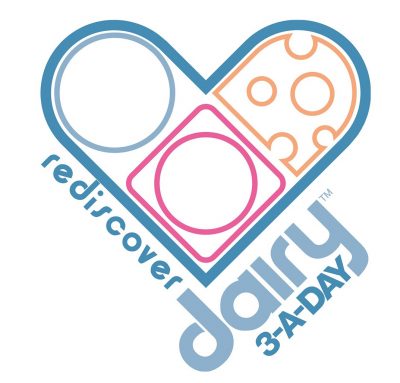Cheese is versatile and delicious – and it’s so easy to make it one of your family’s three-a-day dairy options, every day.
With cheese you’re spoilt for choice
There’s one for everyone! Choose hard, granular, crumbly cheeses such as pecorino, Parmesan, aged Cheddar or Gouda, or Asiago. Or maybe a semi-hard cheese like mild Cheddar and Gouda is more your style? What about a softer type, like haloumi or baby Swiss, or Brie, Camembert, cottage cheese, fresh mozzarella or ricotta?
When it comes to choosing cheese for your family’s meals and snacks, value for money is often top of mind. And, like for every taste, there’s something to fit every budget. To ensure some savings look out for special offers and buy the bigger blocks of hard cheese like Cheddar or Gouda. Grate it all and store it in smaller containers or sealed bags in the freezer for convenient use.
 Cheesy combinations
Cheesy combinations
Pair cheese with healthy options such as fruit, salads and vegetables. You can also use cheese as a tasty topping on a wholegrain pasta dish, make it a go-to sandwich filler or add it as a must-have in a recipe. Add the natural rinds of Parmesan or pecorino to milk when preparing a white sauce or add them to soup for extra flavour. Cheese is good in any form!
With so many options available, cheese is a stalwart in your family’s healthy lifestyle.
Why cheese is good for you
- It’s packed with NUTRIENTS! Cheese is a great source of good-quality protein and provides important nutrients such as calcium, vitamin A, zinc and vitamin B12. Cheese can be a good option for vegetarians to help them meet their vitamin B12 needs as it is abundant in animal-based products. Vitamin B12 is important to support optimal brain health and prevents a form of anaemia.
- The calcium, phosphorus and protein in cheese build healthy BONES and help with MUSCLE DEVELOPMENT and tissue repair throughout life.
- Cheese also helps to protect your TEETH. The specific type of protein found in milk products hinder bacterial action that causes dental cavities.
- Vitamin A and zinc in cheese also support a healthy IMMUNE SYSTEM.
- As an in-between snack, cheese keeps you feeling FULLER for longer and so helps you to overcome cravings while dieting.
- When eaten as part of a healthy diet, cheese does not increase your cholesterol levels or your risk of HEART DISEASE, research shows. But keep an eye on portion sizes! A daily serving of cheese (40 g or 2 tablespoons grated) can be a guilt-free treat for everyone in your family.
- Cheese is TOLERATED BETTER by people with lactose intolerance: Hard cheeses such as Cheddar and Gouda are naturally very low in lactose containing < than 1 g lactose per serving making it easier to digest.
 For more information, visit www.rediscoverdairy.co.za or follow rediscoverDAIRY on Facebook.
For more information, visit www.rediscoverdairy.co.za or follow rediscoverDAIRY on Facebook.
An initiative by the Consumer Education Project of Milk SA


